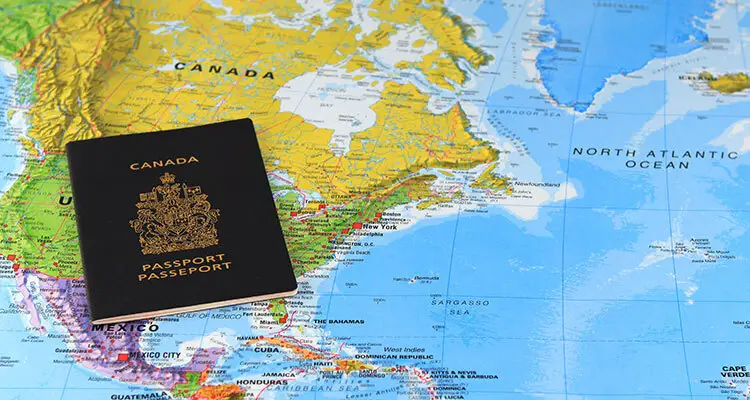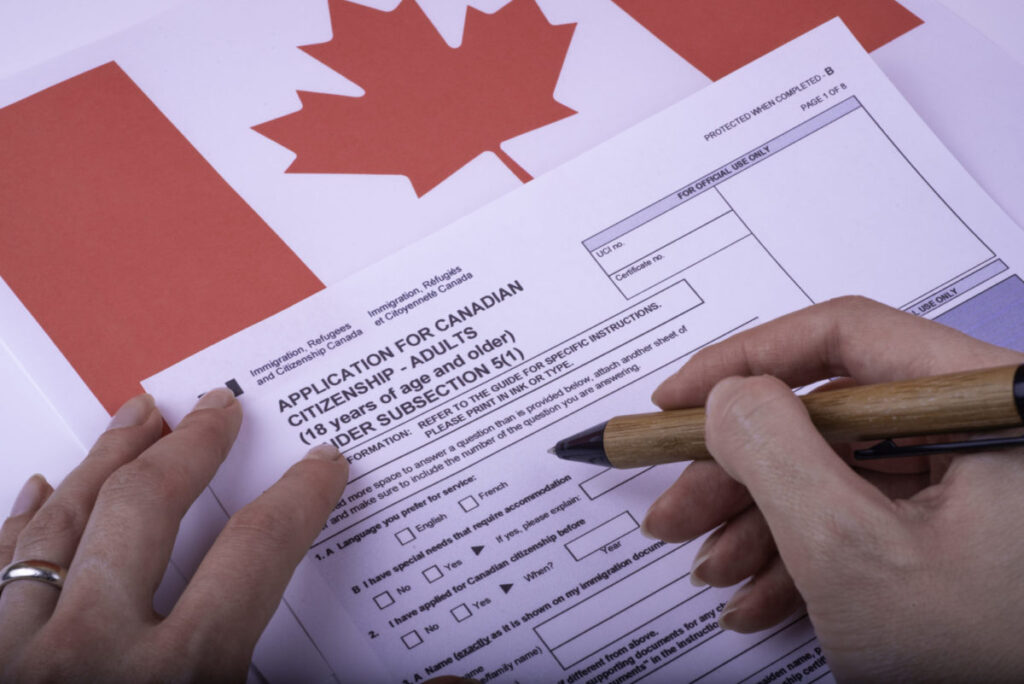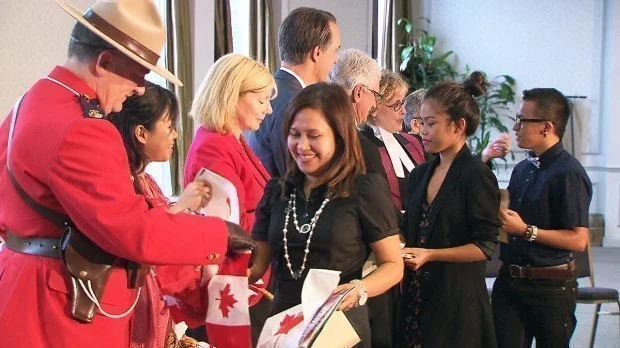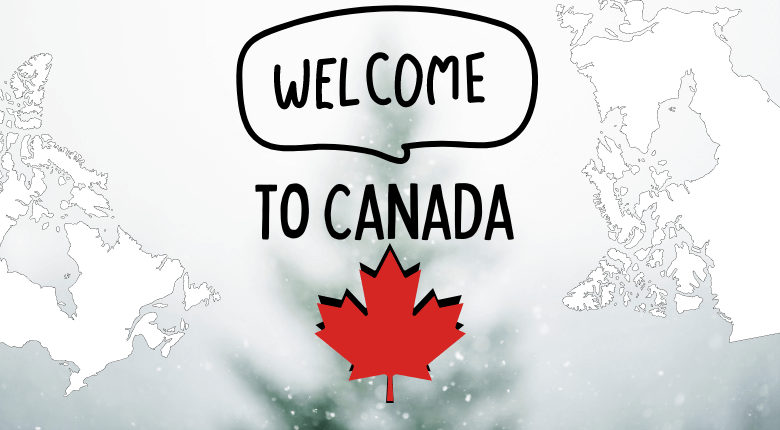Becoming a Canadian citizen is a process that involves several steps and requirements. This article will explore the steps involved in becoming a Canadian citizen, including the eligibility criteria, application process, and citizenship test.
Canadian Citizenship: An Overview
Definition and importance of Canadian citizenship
Being a Canadian citizen grants several rights and privileges. Citizens can vote, run for public office, and receive a passport. Additionally, Canadian citizens have access to several social programs, including healthcare, education, and employment opportunities in Canada.
Process for becoming a Canadian citizen
The process for becoming a Canadian citizen involves several steps. The first step is to determine eligibility. In general, individuals can apply for citizenship if they have been permanent residents for at least three years, have filed taxes for at least three years, and meet language and knowledge requirements.
Once eligibility is established, an application for Canadian citizenship can be submitted. The application requires several documents, including a language test result, a police clearance certificate, and a copy of the applicant’s permanent resident card.
After the application is submitted, the applicant must take a citizenship test and attend a citizenship ceremony. During the ceremony, the applicant recites the oath of citizenship and is presented with a citizenship certificate.
Canadian citizenship offers several benefits that can enhance an individual’s quality of life. Becoming a citizen involves several steps, but individuals can successfully obtain Canadian citizenship with determination and proper preparation.
Eligibility Criteria
Before applying for Canadian citizenship, there are specific eligibility criteria that an individual must meet. Here are some of the essential requirements:
Age Requirement
An individual must be at least 18 or older to be eligible for Canadian citizenship. This means that minors under 18 cannot apply for citizenship on their behalf.
However, children under 18 may be included in their parent’s citizenship application, provided that the parent or legal guardian also meets the eligibility criteria and is applying for citizenship. In this case, the child’s application will be processed with the parent or legal guardian’s application.
It is important to note that certain exceptions exist to the age requirement for Canadian citizenship. For example, individuals who served in the Canadian Armed Forces may be eligible for expedited citizenship processing, regardless of their age.
Permanent Resident Status
To be eligible for Canadian citizenship, an individual must have permanent resident status in Canada. This means they must have legally lived in Canada as a permanent resident for a certain period.

The minimum residency requirement for Canadian citizenship is three years out of the past five years. This means the applicant must have physically lived in Canada for at least 1,095 days within the last five years before submitting their citizenship application.
It’s important to note that time spent in Canada as a temporary resident (such as on a work or study permit) does not count towards the residency requirement for citizenship. Only time spent in Canada as a permanent resident counts towards the requirement.
Maintaining Permanent Resident Status
To maintain permanent resident status, individuals must meet specific requirements, including:
- Residing in Canada for a minimum of two years out of every five years
- Not being convicted of any serious criminal offences
- Not being under a removal order
If an individual fails to meet these requirements or violates Canada’s immigration laws, they risk losing their permanent resident status and may face deportation.
Dual Intent Provision
Individuals applying for permanent residency in Canada can simultaneously apply for Canadian citizenship without affecting their permanent resident status. This is known as the “dual intent” provision.
This provision allows individuals to apply for permanent residency to eventually apply for Canadian citizenship without jeopardizing their eligibility for permanent residence.
Language Proficiency
The applicant must be proficient in either English or French. This means they must pass a language proficiency test to demonstrate their ability to communicate effectively in one of these languages.
As mentioned earlier, one of the eligibility criteria for Canadian citizenship is language proficiency. The applicant must demonstrate their ability to communicate effectively in English or French. This requirement is assessed through a language proficiency test, typically completed before submitting the citizenship application.
The language proficiency test measures an individual’s ability to speak, listen, read and write in English or French. The test is usually conducted by an approved third-party language testing organization, which provides a test report that must be submitted with the citizenship application.
Approved Language Tests

The language proficiency test must be taken from an approved third-party organization. The two most commonly accepted tests are:
- International English Language Testing System (IELTS): This test assesses an individual’s proficiency in English.
- Test d’évaluation de français pour le Canada (TEF Canada): This test assesses an individual’s proficiency in French.
These tests evaluate an individual’s language skills based on various tasks, including reading, writing, speaking and listening. The test results must be submitted with the citizenship application to demonstrate proficiency in one of Canada’s official languages.
Language Exemptions
There are certain exemptions to the language proficiency requirement. For example, individuals 65 or older at the time of their citizenship application are exempt from the language proficiency requirement.
Additionally, individuals with a physical or mental condition that prohibits them from taking the language proficiency test may be exempt. In these cases, medical documentation must be provided to support the exemption request.
Knowledge of Canada
The applicant must know Canada’s history, geography, government, and rights and responsibilities of citizenship. This knowledge is assessed through the citizenship test.

Another eligibility requirement for Canadian citizenship is knowledge of Canada. An individual must know Canada’s history, geography, government, and rights and responsibilities of citizenship.
This requirement is assessed through a citizenship test, which evaluates an individual’s understanding and knowledge of Canada.
Discover Canada Guide
To prepare for the citizenship test, individuals can use the Discover Canada guide, which provides information on Canada’s history, geography, government, and rights and responsibilities of citizenship.
The Discover Canada guide is available online and in print. It covers various topics such as Canadian history, Canadian culture, the Canadian economy, Canadian geography, Canadian government, and Canadian values.
Citizenship Test
The citizenship test consists of multiple-choice questions and is usually taken on a computer. The test measures an individual’s knowledge of Canada, including their understanding of Canadian history, geography, government, and rights and responsibilities of citizenship.
The passing mark for the citizenship test is 75%. If an individual fails the test, they can retake it later.
Exceptions
There are certain exceptions to the knowledge of Canada requirement. For example, individuals who are 55 or older at the time of their citizenship application may be exempt from taking the citizenship test.
Additionally, individuals with a physical or mental condition that prohibits them from taking the citizenship test may be exempt. In these cases, medical documentation must be provided to support the exemption request.
Criminal History
To be eligible for Canadian citizenship, an individual must not have a criminal record. This means they cannot have been convicted of serious criminal offences in Canada or abroad.
The Canadian government conducts a criminal background check on all citizenship applicants to ensure they meet this requirement. This includes obtaining fingerprints and conducting name checks against law enforcement databases in Canada and abroad.
Serious Criminal Offenses
Criminal severe offences include offences such as:
- Murder
- Manslaughter
- Assault causing bodily harm
- Sexual assault
- Robbery
- Theft over $5,000
- Fraud over $5,000
Individuals convicted of these offences may be deemed inadmissible to Canada and, therefore, ineligible for citizenship.
Rehabilitation
Individuals with a criminal record may be eligible for rehabilitation in some instances. Repair is when individuals demonstrate that they have reformed their behaviour and no longer pose a risk to Canadian society.
If an individual has been rehabilitated and a sufficient period has passed since their conviction, they may be eligible for Canadian citizenship. However, the specific requirements and timelines for rehabilitation vary depending on the offence committed.
Application Process
Once an individual meets the eligibility criteria, they can begin the application process for Canadian citizenship. Here are the steps involved:
Step 1: Gather Documents
The first step is gathering all the necessary documents for the application. This includes proof of identity, permanent resident status, and other supporting documents.
Step 2: Fill Out the Application Form
The next step is to fill out the application form. The form can be filled out online or on paper. It is essential to provide accurate information and ensure all questions are answered.
Step 3: Pay the Application Fee
There is a fee associated with the citizenship application. The price must be paid when applying.
Step 4: Submit the Application
The completed application form and supporting documents must be submitted to Immigration, Refugees and Citizenship Canada (IRCC).
Step 5: Attend a Citizenship Ceremony
Once the application is approved, the applicant will be invited to attend a citizenship ceremony where they will take the Oath of Citizenship and receive their Canadian citizenship certificate.
Application Processing Time
The processing time for a Canadian citizenship application varies depending on several factors, including the volume of applications being processed and the case’s complexity. On average, it takes approximately 12 months to process a citizenship application.
During the processing period, the government may request additional information or documentation from the applicant. Responding promptly to requests is vital to avoid delays in processing the application.
Dual Citizenship
Canada allows its citizens to hold dual citizenship, which means that an individual can be a citizen of Canada and another country simultaneously. However, checking other countries’ laws is essential to ensure they allow dual citizenship.
If an individual holds dual citizenship, they are still entitled to all the rights and privileges of Canadian citizenship, including the right to vote and run for office.
Dual Citizenship for Minors
Children who acquire Canadian citizenship through their parents may also hold dual citizenship, depending on the other country’s laws. This means the child can have Canadian and another country citizenship.
It is important to note that dual citizenship can affect travel, taxation, and access to government services in both countries. It is recommended that individuals consult with a legal professional or immigration advisor before applying for citizenship to understand the potential implications of dual citizenship.
Citizenship Test

As mentioned earlier, knowledge of Canada is assessed through the citizenship test. The test is designed to evaluate an individual’s understanding of Canada’s history, geography, government, and rights and responsibilities of citizenship. Here are some essential things to know about the citizenship test:
Format of the Test
The citizenship test consists of multiple-choice questions and is usually taken on a computer.
Pass Mark
The passing mark for the citizenship test is 75%. If an individual fails the test, they can retake it later.
Study Materials
Study materials for the citizenship test are available online and include the Discover Canada guide, which provides information on Canada’s history, geography, government, and rights and responsibilities of citizenship.
Application Fees
There is an application fee associated with the Canadian citizenship application. As of 2023, the price for an adult application is CAD 630 per person (which includes a CAD 100 right of citizenship fee). For children under 18 years of age who are applying with their parents or legal guardian, the price is CAD 100 per person.
The application fee must be paid online using a credit or debit card. The payment must be made at the time of application.
Citizenship Ceremony

Once an individual’s application for Canadian citizenship is approved, they will receive an invitation to attend a citizenship ceremony. A citizenship ceremony is a formal event where new citizens take the Oath of Citizenship and receive their Canadian citizenship certificate.
During the citizenship ceremony, new citizens pledge their loyalty and commitment to Canada and affirm their willingness to uphold Canadian values and traditions. The ceremony is usually held in a public venue, such as a community center or courthouse, and is presided over by a citizenship judge.
Retaking the Citizenship Test
If an individual fails the citizenship test, they can retake it later. It is important to note that failing the test can delay the processing of the citizenship application.
To prepare for the citizenship test, applicants can use the Discover Canada guide, which provides information on Canadian history, geography, government, and the rights and responsibilities of citizenship. There are also practice tests available online to help individuals prepare for the test.
Dual Citizenship
Canadian citizenship laws and regulations
Canada allows its citizens to hold dual citizenship, meaning they can simultaneously be citizens of Canada and another country. However, this may not be true for other countries, as some restrict dual citizenship. It is essential for individuals interested in obtaining dual citizenship to research their country’s laws and regulations to avoid any legal issues.
Canadian citizenship laws require individuals to inform the Canadian government if they are also citizens of another country when they become Canadian citizens. Failure to do so can result in the revocation of Canadian citizenship. Additionally, serving in a foreign country’s military or political office may lead to the loss of Canadian citizenship.
Benefits and implications of dual citizenship
Dual citizenship offers several benefits, such as the ability to travel, work, and reside in both countries without restrictions. It also provides access to the social benefits and services of both countries. Dual citizenship can also be beneficial for business and inheritance purposes.
However, there may also be implications of holding dual citizenship, such as being subject to the laws and regulations of both countries. It may also lead to tax obligations in both countries, which can be complicated. It is crucial that individuals seeking dual citizenship carefully consider the implications and seek legal advice before proceeding with the process.
In conclusion, obtaining dual citizenship can offer numerous benefits but requires thorough consideration of the laws and regulations of both countries. Seeking legal advice can aid in ensuring a smooth and successful process.
Citizenship Revocation
Grounds for citizenship revocation
Canadian citizenship can be revoked under certain circumstances, such as providing false information during citizenship or being convicted of a serious crime such as terrorism, treason, or espionage. Citizenship can also be revoked if the government determines it was obtained through fraud or misrepresentation.
It is important to note that revocation of citizenship can have severe implications, including the loss of the right to live and work in Canada and the ability to travel. Therefore, individuals must comply with Canadian citizenship laws and regulations to avoid such consequences.
Appeals process and legal representation
Individuals whose citizenship is threatened by revocation can appeal the decision. The appeals process can be complex and time-consuming, so it is essential to seek legal representation to navigate it successfully.
Having a lawyer to represent them can significantly increase an individual’s chances of success in an appeal. Legal representation can help to build a strong case and handle communication with the government, ensuring that all necessary paperwork and documentation are filed correctly and on time.
In conclusion, Canadian citizens must comply with the laws and regulations surrounding citizenship to avoid revocation. If an individual is facing the loss of their citizenship, it is advisable to seek legal representation to navigate the complex appeals process successfully and ensure the best possible outcome.
Rights and Responsibilities of Canadian Citizens
Voting, passport, and healthcare benefits
Canadian citizens have certain rights and privileges that come with their citizenship. For instance, they can vote in federal and provincial elections, essential for democracy. They are also entitled to a Canadian passport, which allows them to travel freely around the world. Additionally, they have access to free healthcare and social services.
Responsibilities of Canadian citizens
With rights come responsibilities. Canadian citizens must obey the law, pay taxes, and participate in their communities. They are encouraged to volunteer and give back to society, whether it be through charitable organizations or by participating in community events. Canadian citizenship also means respecting the rights of others, including those of different races, religions, and cultures.
Canadian citizenship is a privilege with rights and responsibilities. Citizens can vote, travel freely, and access healthcare, among other benefits. However, they must also follow the rules, pay taxes, and actively participate in their communities. Canadian citizens can contribute to a strong, vibrant, prosperous country by embracing their rights and responsibilities.
FAQ

Who is eligible to become a Canadian citizen?
Generally, individuals must be 18 or older and have been permanent residents of Canada for at least three years (1,095 days) out of the five years before submitting their application. Other requirements include language proficiency and knowledge of Canada’s history, values, institutions, and symbols.
How do I apply for Canadian citizenship?
You can apply for Canadian citizenship by completing the application form and submitting it to Immigration, Refugees and Citizenship Canada (IRCC), along with supporting documents and the processing fee.
What documents do I need to include with my application?
The required documents may vary depending on your circumstances but typically include proof of identity, residence in Canada, language proficiency, and any previous immigration or criminal records.
What is the citizenship test, and how do I prepare for it?
The citizenship test assesses your knowledge of Canada’s history, values, institutions and symbols. You can prepare for the test by studying the official “Discover Canada” guide and taking practice tests online.
What happens after I submit my citizenship application?
After submitting your application, IRCC will review it to ensure you meet all eligibility requirements. If your application is accepted, you will be invited to attend a citizenship ceremony where you will take the oath of citizenship and receive your Canadian citizenship certificate.
Is there a fee for applying for Canadian citizenship?
Yes, there is a processing fee for Canadian citizenship applications. The current price is CAD 630 per adult applicant and CAD 100 for children under 18.
Can I lose my Canadian citizenship?
A: In some cases, yes. Canadian citizenship can be revoked if obtained fraudulently if the individual is convicted of certain crimes or voluntarily renounces citizenship.
Can I apply for Canadian citizenship if I am a refugee?
Refugees can apply for Canadian citizenship if they meet the eligibility requirements. However, the residency requirement may be different for refugees.
What is the language proficiency requirement for Canadian citizenship?
The language proficiency requirement for Canadian citizenship is assessed through a language test or proof of secondary or post-secondary education in English or French. Applicants must demonstrate an adequate level of proficiency in either English or French.
How long does it take to get Canadian citizenship?
The processing time for Canadian citizenship applications varies depending on several factors, such as the volume of applications being processed and the completeness of the application. Generally, it takes between 12-18 months from the time of application to become a Canadian citizen.
Can I apply for Canadian citizenship without a criminal record?
It depends on the crime’s nature and how long it occurred. Certain criminal convictions may make an individual ineligible for Canadian citizenship. It’s essential to consult with an immigration lawyer or qualified professional to discuss your circumstances.
What are the benefits of Canadian citizenship?
Canadian citizenship has many benefits, including the ability to vote and run for political office, access to certain government benefits and programs, and travel with a Canadian passport. Additionally, Canadian citizenship provides greater security and stability than permanent residency.
Can I apply for Canadian citizenship if I am married to a Canadian citizen?
Being married to a Canadian citizen does not automatically grant individual Canadian citizenship. However, being a Canadian citizen’s spouse may help speed up the residency requirement for becoming eligible to apply for citizenship.
What is the oath of citizenship?
The oath of citizenship is a solemn declaration that new citizens make during their citizenship ceremony. It involves swearing allegiance to the Queen and a commitment to upholding the laws and values of Canada.
Can I keep my original citizenship when I become Canadian?
Canada allows dual citizenship, so in most cases, individuals can keep their original citizenship when they become Canadian citizens. However, it’s essential to check with the country of your actual citizenship to ensure that they also allow dual citizenship.
Is there a residency obligation for Canadian citizens?
Canadian citizens have no residency obligation, meaning that once you become a citizen, you can live and work anywhere in the world without losing your Canadian citizenship.
Can I sponsor family members for Canadian citizenship?
As a Canadian citizen, you may be able to sponsor certain family members for permanent residency in Canada, which can eventually lead to citizenship. However, the rules and eligibility requirements for sponsorship can be complex, and it’s recommended to consult with an immigration lawyer or qualified professional for guidance.
How can I expedite my Canadian citizenship application?
Sometimes, requesting urgent processing for your Canadian citizenship application may be possible. This is typically only granted in exceptional circumstances, such as medical emergencies or situations threatening personal safety or security.
- Yonge-Dundas Square in Toronto is Now Called “Sankofa Square” - December 17, 2023
- Best Western Brooks’ SureStay Plus debuts in Alberta - December 16, 2023
- Air Canada Arrives in Tulum, Mexico as the First Canadian Airline - December 16, 2023




